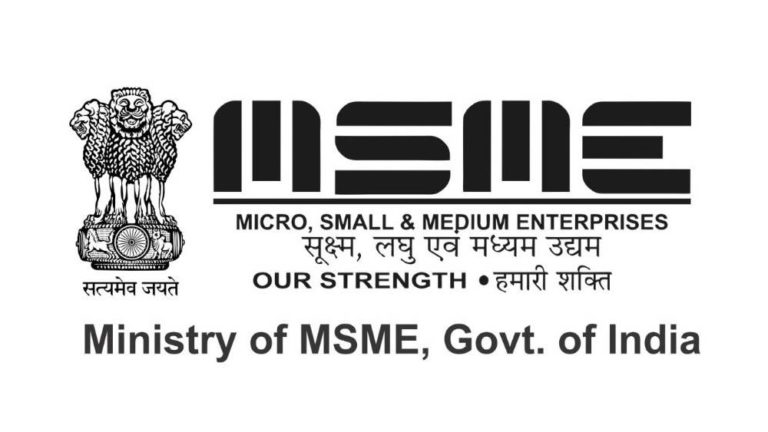The Micro, Small and Medium Enterprises (MSMEs) has emerged as a very important sector in economy. The sector is a major contributor to Indian economic development contributing highly towards inclusive growth and employment generation. It contributes to regional development, industrial production, GDP growth, export earnings, economic diversification and social stability.
It accounts for 45 per cent of total industrial production, 40 per cent of total exports and contributes very significantly to the GDP. The manufacturing segment within the MSME contributes to 7.09 per cent of GDP, Services contribute 30.50 per cent. In fact, the total contribution of MSMEs to the GDP is 37.54 per cent. Remember this is data concluded from registered MSMEs. However, the current data indicate that although MSME registrations are at a meagre 8.3 million (13% of all MSMEs), these registered MSMEs create 46.6 million (42%) jobs. It generates employment for 60 million people and creates 1.3 million jobs every year. Given that a majority of India’s population lives in villages and Tier-1/Tier 2 cities, the SME sector has also emerged as a key factor to urbanize rural India. That is a big number.
Even the United Nations has recognized the importance of the sector. UN says that these type of enterprises act as the first responders of the needs of the society, provide a safety net for inclusiveness and are a primary driver of poverty alleviation and development. Hence, the United Nations celebrates ‘Micro-, Small and Medium-sized Enterprises Day’ on 27th June every year to raise public awareness of this sector’s contribution to sustainable development.
Realizing its importance the successive governments have been very sympathetic towards the sector and announced several measures but on ground the impact of those announcements are minimal.
Public Procurement Policy for MSMEs
It was the major decision. Public Procurement Policy for Micro and Small Enterprises was announced with much fanfare. Effective from effective from 1st April 2019 the objective is promotion and development of Micro and Small Enterprises by supporting them in marketing of products produced and services rendered by them. However, the policy rests upon core principle of competitiveness, adhering to sound procurement practices and execution of supplies in accordance with a system which is fair, equitable, transparent, competitive and cost effective.
The Policy dictates that every Central Ministry /Department / PSUs shall set an annual target for 25% procurement from MSE Sector. And a sub-target of 4% out of 25% target of annual procurement earmarked for procurement from MSEs owned by SC/ST entrepreneurs. A special provision says that out of the total annual procurement from Micro and Small Enterprises, 3 per cent from within the 25 per cent target shall be earmarked for procurement from Micro and Small Enterprises owned by women. Tender sets free of cost and exemption from payment of earnest money to registered MSEs. A total of 358 items are reserved for exclusive procurement from MSEs. The buyers include 46 Central Departments, 51 Central Ministries, and 277 CPSUs. That makes a big market. But how much actual procurement is done? Not to a satisfactory level, certainly.
Challenges
India is one of the fastest growing economies of the world and the good thing that has happened since Narendra Modi government came to power is that the economic growth has steadily accelerated and most importantly, remains very stable. This has also been driven by robust influx in the domestic and foreign funds, rise in disposable income and consumption among many other positive attributes. But one other major factor that has emerged as the backbone of economy is Small and Medium Enterprises (SME) sector.
Sadly, the sector is facing a number of challenges. It is seen that banks refrain from extending MSME loan since banks believe MSMEs lack the required repayment capacity. In such a situation, they end up implementing stricter regulations. Some businesses also fail to keep track of their credit rating that hampers the prospect of availing loans. Some businesses find it difficult to avail MSME loan as a result of a strict collateral protocol. Since small companies may not have the property to substantiate the criteria to avail a loan, they opt for unsecured business loans from lenders and find themselves in soup later on being unable to service the debt.
Even as India managed to jump places in the World Bank’s Ease of Doing Business index, there are several loopholes in the system. Thus, entrepreneurs are demotivated to start up because of troubles relating to MSME loan and dealing with various permits. The regulatory loopholes cause a delay in getting licenses, insurance, and certifications. Most businesses face problems related to manufacturing, timely purchase of raw materials, or even access to new technologies due to lack of funding.
The entrepreneurs without sound financial knowledge sometimes are not be in a position to make crucial business decisions related to loans. In absence of financial knowledge, they end up taking wrong decisions that may cost the business.
In a nutshell SMEs face a number of challenges: First and foremost is lack of capital due to inadequate access to finance and credit; Inability to attract talented and tech-savvy manpower; Poor infrastructure and utilities resulting in low production capacity; Lack of innovation and marketing know-how. A huge technology and digital knowledge gap also makes the going tough.
Real Scenario
Despite various initiatives taken by the central and state governments the situation on ground remain same. Mere big announcements and big plans make no difference on ground. Already reeling under so much trouble among all the sectors, MSMEs were badly hit following the lockdown as industries remained closed between March-end and June. The current economic situation is not conducive to small industries as there is restricted liquidity in the system, though the government pumped in stimulus to keep the sector alive.
There are various other aspects also related to problems of acquiring timely funds for working capital needs, lack of consultancy support, marketing, technology, and operations. Difficulty to complicated documentation, lack of the latest technological skills, need-based research programs, and low-quality products, poor bargaining power, complicated laws, lack of foreign quality certifications etc. are few of such problems.
As a result the MSMEs are not able to compete with big companies while securing orders from government agencies. Even small value tenders are out of their reach. The government must put a barrier so the big companies don’t enter in the fray up to at least Rs50 crore tender processes. This way MSMEs will compete with each other only. Now the ground reality is the big fish gets all the orders and get the work done by MSMEs. They get only a fraction of the profit.
Secondly, the MSMEs have been the worst affected by Covid. Despite lockdown and less or no work they had to keep the employees on roll and pay them as getting trained people would be difficult when the normalcy returns. The central government has given a lot of incentives and freebies to various sectors and helped people engaged in different activities like farmers, pavement shopkeepers etc. But there has been no support given to MSMEs in any way. It should not be forgotten that most of the owners in MSME sector belong to middle class with big dreams in their eyes. They are the actual job givers, creating thousands of local jobs; help balance migration besides dutifully paying their taxes. Never have we heard some MSME entrepreneur leaving the country with stacks of public money in suitcases.
The government’s lip-service will not work. It has to focus on implementation. For example SIDBI has so many schemes for the sector, huge funds lying unused, but the organization has so much restrictions, huge paper work and to top of it no true inclination to support the MSME entrepreneurs. As a result a few days back the organization has called entrepreneurs to come to them for financial assistance but it finds no takers. Those who are in need of the fund know well that it would be a futile exercise, and they would never be able to pass the test.
Remedies
Due to the above mentioned challenges, the Indian SMEs are unable to scale to their full potential, but these challenges also offer a broad scope to strengthen the foundation of SMEs in India. The government has been making efforts to empower SMEs to overcome these hurdles. Many banks have introduced easy finance and credit schemes to help SMEs avail capital without any hassles.
Some technology companies have also launched tailormade products, services and solutions for SMEs. There is Assistance to Training Institutions Scheme, which provides financial assistance to national level training institutions operating under the Ministry of MSME. Besides, the corporate sector is doing their bit to give a push to the SME sector. Most businesses fail to reap the benefits of the latest technological developments in their sector due to a lack of expertise and awareness. It is important for scientific research bodies to remain involved with the local MSME clusters, and take notice of their technology-related problems and issues.
However, the buck stops at the door of the government which is certainly not able to execute its own announced initiatives. In view of its significance, the government is expected to provide adequate support to ensure MSMEs’ growth does not get hamstrung at any point, especially in the middle of a pandemic that has brought major global economies to a standstill.
























